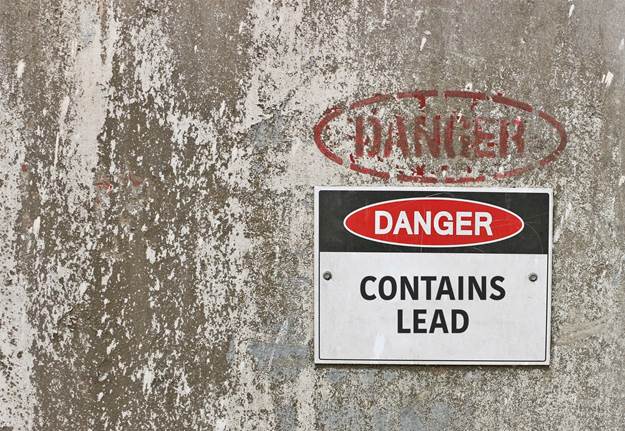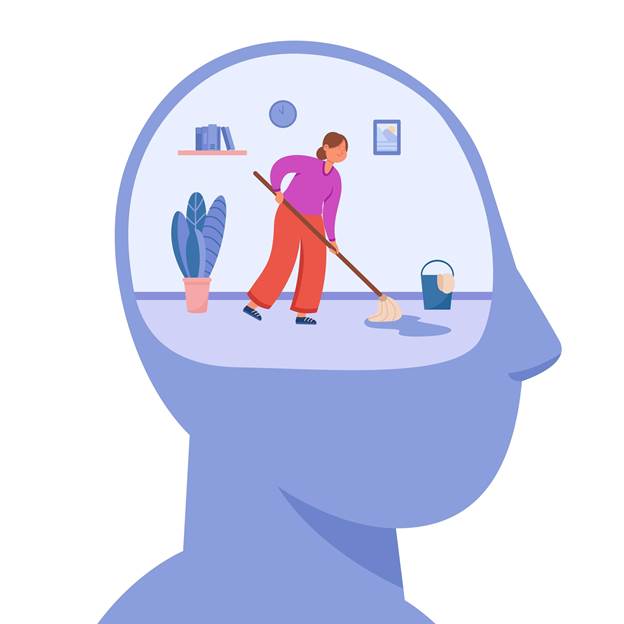Our environment is full of pollutants. From the “fresh air” we’re breathing, to the water we drink, to even the products we put on our skin, there are heavy metal toxins increasingly present in the world around us - and therefore, inside our bodies.
There are some naturally occurring metals such as cadmium and lead which can be created by environmental phenomena like volcanic eruptions or rock weathering. At a higher, more concerning rate, however, there is an increase in anthropogenic or industrial sources of heavy metals including agriculture, mining, and domestic developments.
Those who are aware of heavy toxic metals may take precautions to reduce their exposure. You can choose foods based on their packaging, use water filters, and be diligent about ingredients in topical products to help reduce unnecessary exposure to metals.
There is, unfortunately, no escaping some amount of heavy metal absorption.
Depending on where you live and certain genetic factors, you may be unavoidably susceptible to taking in toxic levels of heavy metals. This can lead to a series of health problems and even Heavy Metal Poisoning.
Fortunately, the Easy Detox Toxic Removal System (TRS), is a safe and simple way to help remove these unwanted metals from your body. With appropriate care and information, the TRS Heavy Metal Detox many harmful impacts from heavy metals can be relieved and avoided.
What is Heavy Metal Poisoning?
Heavy metal poisoning occurs when the body absorbs and accumulates toxic amounts of heavy metals in the soft tissues.
There are heavy metals that are essential for bodily functions including zinc, copper, chromium, iron, and manganese, but the amount our bodies need is very small. If accumulated in high concentrations, these metals compete with and replace certain essential minerals that aid in organ system function.
Most people associate heavy metal poisoning with lead, methyl mercury, arsenic, and cadmium. You or your loved ones can be impacted by high concentration levels of these metals as a result of industrial exposure, foods (including too much fish), certain medicines, food containers, or pollution in the air or water.
What is Acute Heavy Metal Poisoning?
Acute heavy metal poisoning occurs when you are exposed to very high levels of toxicity in a short amount of time. Examples of this are the ingestion of lead paint during a renovation or a child ingesting a battery.
Symptoms of acute heavy metal poisoning can arise within one to several hours. Common symptoms of this type of heavy metal poisoning include numbness, feeling generally unwell, nausea, vomiting, feeling disoriented or confused, and losing consciousness.
Depending on the amount of exposure, you might experience several more serious symptoms such as kidney damage, dehydration, and even behavioral changes.
Regardless of the amount of toxic heavy metal you’re exposed to, it should be taken seriously and treated urgently. If not treated swiftly, symptoms will only continue to get worse and may cause irreparable damage.
What is Chronic Heavy Metal Poisoning?
Chronic poisoning is the other side of the coin. This is what happens when you’re consistently exposed to heavy metals for a long period. This low exposure will build up the metals in your body and make you very sick.
This is additionally dangerous because the symptoms will come on slowly, meaning that you might not notice you’re suffering from heavy metal poisoning until it’s much too late.
If you’re suffering from chronic poisoning, you might experience tiredness and weakness, achy joints and achy muscles, constipation, constant headaches, and many more things that can have long-term consequences, such as brain problems and muscle deficiencies.
How Do I Know If I Need a Heavy Metal Detox?
If you’re wondering whether you need a heavy metal detox, you should consider if you have symptoms that could be explained by a buildup of toxic heavy metals. Possibly symptoms depend on what type of metal you’ve been exposed to and how high the level of toxicity is in your body.
Symptoms commonly seen include:
- Stomach pain and gastrointestinal-related symptoms
- Brain fog, memory loss, confusion or generally feeling in a daze
- Fatigue despite getting enough sleep
- High or low blood pressure
- Unusual mood and behavioral changes (ie. anxiety, depression)
- Joint pain and muscle aches
- Autoimmunity and generally feeling unwell
Some of these symptoms take time to become apparent but should be noted as warning signs that your Heavy Metal levels are dangerously high. If ignored and untreated, heavy metal poisoning can lead to organ malfunction and failure, and neurological implications such as depression or behavioral challenges.
If you have been frequently or constantly unwell and symptoms have not improved after considering your lifestyle (including diet, thyroid health, gut health, etc) you will likely benefit from a heavy metal detox.
The best way to determine if you may have heavy metal poisoning and which metal is impacting you is to talk to your physician about wanting to do a heavy metal detox.
How Do I Detox Myself of Heavy Metals?
Despite most medical sources agreeing that metal toxicity is a threat to healthy functioning and vital organ performance, the traditional medical community typically only talks about heavy metals when there is acute toxicity that is present.
Sudden onset symptoms or significant, accidental exposure will usually trigger a doctor to consider testing for metal toxicity in their patients. Many doctors, however, miss the more gradual, long-term exposure to metals that lead to chronic metal poisoning.
Fortunately, there are steps you can take on your own to help support metal cleansing:
Heal Your Gut Lining
The lining of your gut is one of your first lines of defense against any heavy metals that are ingested from foods we eat or the water we drink. Preexisting gut issues such as leaky gut syndrome, ulcers, or bacterial imbalances can make you more susceptible to problems with heavy metals.
Swap out processed foods for whole, unprocessed ingredients. If you can, select organic options and incorporate more healthy fats and other gut-friendly foods like bone broth and collagen peptides.
Also, make sure to follow up on infections or bacterial overgrowth with your doctor. These types of ailments can do a number on the digestive system and impair your ability to tackle your metal toxin levels.
Make Sure Things are Flowing Smoothly
Your body has a natural system for cleaning out waste called the excretory system. Vital organs such as your skin, liver, kidneys, and lungs, along with your urinary tract all work together to remove waste products, unwanted toxins, and contaminants like heavy metals.
If you have been indulging in an unhealthy diet or lifestyle, these excretory systems are likely working overtime. Just like you, they get stressed and lose their normal efficiency.
If you think your excretory systems could use a break or a little boost, there are a number of steps you can take to help get them back to their optimal performance.
The most effective tool to help flush our bodies is water. Everything in the body works better when you drink enough water so make sure you’re getting at least your recommended daily amount.
Identify and Remove the Source of Heavy Metal Toxins
Figuring out exactly what toxins you need to address may not be as simple as observing your work or home environment. With a physician’s help, you can determine which metals you have been exposed to via a blood or urine test.
Metals, though, are just like pathogens that hide in little pockets in the body. They are not always found in the bloodstream and instead settle into joints, fascia, fat tissue, and lymph. This is why a holistic review of potential exposure is the best way to assess your need for a heavy metal detox.
Once you know which heavy metals you’re dealing with, you can narrow down the sources and take action. For example, discovering you have high levels of lead may mean you need to switch from tap to bottled water.
If you seldom eat organic but have high amounts of copper, iron sulfate, and calcium, you would likely benefit from switching to organic foods. Even if you wash your fruits and vegetables, these types of metals found in pesticides can be absorbed into the body.
Quitting smoking or keeping your distance from a smoker is a way to avoid heavy metal exposure.
Smoke from cigarettes contains heavy metal fumes that can be absorbed into the lungs and ash contains residue that is absorbed into the skin and bloodstream. Do a deep clean of your home or vehicle and if possible, remove this source from your everyday life.
Add Essential Supplements to Support Detox
Certain supplements can be added to the body to help block over absorption of heavy metals and aid in detoxifying functions. The Advanced Fulvic is a great supplement that promotes gut health by optimizing the microbiome and also It also prompts your excretory system to flush the heavy metals out of your body.
Vitamin C is another supplement that supports the reduction of toxins while building up immune function. Adding vitamin C to your detox regime will also support the production of collagen and protein, both used for structural support in the body which can be rundown as a result of heavy metal toxicity.
As well, vitamin C plays a vital role in increasing your Glutathione levels by naturally recycling any used Glutathione in the blood and using it again.
Glutathione is a substance produced by the liver and is vital for the proper functioning of the immune system, as well as for building and repairing tissue.
This important antioxidant protects the body against damage caused by free radicals and makes proteins and chemicals that are needed to ensure your body stays healthy.
The Chelation of Heavy Metals
After making a few lifestyle changes, you’re ready to remove heavy metals from the microscopic storage points in your body. Hidden in your tissue, cells, and systems these metals are best removed by binding them so that they can be flushed into your bloodstream and then into your excretory system.
This process of creating bonds and flushing them out is also known as chelation. This can be done naturally or through therapeutic means.
Certain foods contain molecules that bind easily to metals including cilantro and garlic. As toxins are excreted, they pass through the liver (in bile to your feces) or through your kidneys (in urine) which is why we suggest using Liver Health and Kidney Health as a part of your detox program.
Toxins can also pass through your skin as you sweat. Exercise is a healthy way to help flush toxins out as the sweat produced excretes unwanted toxins and physical activity promotes overall wellness.
Saunas are also excellent for detoxifying as the heat or light helps your body sweat even faster than it would normally.
Chelation therapy is a method of detoxing your body of heavy metals that requires chelating agents injected by a medical physician.
The chelating agents have the ability to form specific bonds between the heavy metals in your body and organic molecules. This is what gives them their binding ability, and it is what makes them so efficient at ridding your body of excess heavy metals.
If a doctor determines chelation therapy is needed, they will inject a solution called EDTA (ethylenediaminetetraacetic acid) through a slow intravenous drip.
This synthetic amino acid goes through your bloodstream and starts binding molecules to salts. Then they attach to the heavy metal pockets in your cells and tissue and escort them back into the bloodstream.
Once they hit the bloodstream, your body will start to flush the bound toxins through the excretory system and out of your body.
Is Heavy Metal Detoxing Safe for Everyone?
Everyone has a certain amount of heavy metals in their body along with other toxins that we should help our bodies get rid of. Most natural means of removing these toxins are safe for people of all ages, including our Advanced TRS Detox Spray.
Although mostly safe, consultation with a physician is highly recommended for any detox plan and required for chelation therapy.
How Long Do Heavy Metal Detoxes Take?
Just as the process of absorbing unwanted metals happens over time, the reality is the process of removing these metals also takes patience and time.
The body is simply not created to change significantly with the flip of a switch. Slow, consistent changes over time lead to longer-lasting and more effective improvements to overall health including reduced amounts of heavy metals.
An effective approach to heavy metal detoxification will likely take about 2 years to remove the majority of heavy metals.
This can vary as well depending on factors such as genetically weak detoxification pathways. Your commitment to other lifestyle changes will also greatly impact the speed at which detoxification works.
The combination of daily habits and detoxification supplements can result in you feeling better in a matter of weeks, though. Taking care of the body overall will lead to better sleep, better exercise performance, and overall better health.
When Can I Stop Doing Heavy Metal Detoxes?
Since it is difficult to avoid all environmental pollutants and their influences on our bodies, there will always be some amount of exposure to heavy metals.
It is impossible to fully avoid toxins over our lifetime. Especially as we continue to industrialize and develop, the number of heavy metals surrounding us will only increase.
The best way to prevent and manage heavy metal exposure is to avoid the settling of heavy metals into the pockets of the body. This means creating and sticking with a detoxification plan that continuously helps flush out our excretory systems.
The Bottom Line
We live in a world where exposure to heavy metal is unavoidable. The absorption of heavy metals can vary depending on genetic conditions, lifestyle, and environment.
Having a high level of heavy metals in the body may cause a variety of health problems such as autoimmunity, depression, brain fog, fatigue, joint pain, nausea, and many other issues.
Some heavy metals such as zinc and iron such as zinc and iron are necessary for our body to function. Our bodies, however, are exposed to many more heavy metals than we need, and keeping our bodies as free as possible from these unwanted toxins is important for our wellbeing.
With dedication and work, you can start the process of detoxification through changes such as eating organic and choosing beauty or body care products that have little to no additional metals in them.
Supplements and detoxification solutions are important for helping remove metals that are lodged in the pockets of our tissues. These agents are used to bind and help move toxins to the bloodstream and out via our excretory systems.
The process of detoxifying the body of heavy metals can be a slow one but commitment can reduce the chances of future toxic overload. It is very important to talk to a doctor about your detoxification plan but it could be the solution to finally help you start feeling better.



